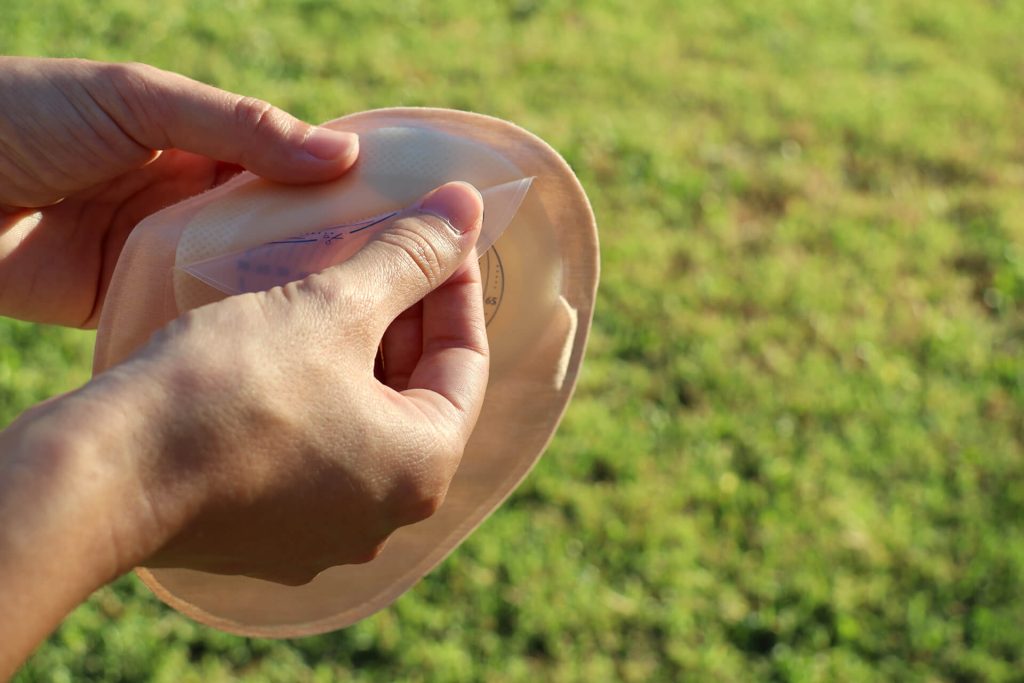Learn
Stay updated with stories from the world of stoma care and the latest at Salts Healthcare.


Before your Stoma surgery
Discover what to expect and how to prepare for your stoma operation with helpful insights and guidance.

After your Stoma surgery
Get essential advice on recovery, understanding your stoma, changing stoma bags, and choosing the right products for your needs.

Living with a stoma
Find support for every aspect of life with a stoma, from early recovery to tips on travel, exercise, diet, and relationships.

Changing Your Stoma Bag
Connect with others living with a stoma, gain expert advice, and explore the latest stoma care products and services.
Additional Resources
Adjusting to life with a stoma can be challenging, from managing emotions to adapting to physical changes and improving sleep. Explore our tools and resources designed to support your emotional, psychological, and physical well-being below.
designed to guide you before and after your operation
Helpful Videos for Your Stoma Journey

We are dedicated to improving the health and well-being of our customers by providing innovative stoma care products, with specialist support and resources.
Frequently asked questions
What is a stoma?
Stoma is a Greek word meaning ‘opening’ or ‘mouth’. A stoma is an opening on the abdomen that can be connected to either your digestive or urinary system. This will allow waste (urine or faeces) to be diverted out of your body.
What dietary advice should I follow after stoma surgery?
After surgery, it’s important to eat small, regular meals to aid recovery. You can gradually return to your normal diet, but some foods might initially upset your stoma. If certain foods cause issues, try reintroducing them a few weeks later.
How can I manage wind (gas) with a stoma?
Certain foods like cabbage, beans, and fizzy drinks can increase wind. To reduce it:
- Eat regularly and avoid long gaps between meals.
- Avoid drinking through straws.
- Consider peppermint tea or live yogurt.
What should I do if I suspect a food blockage?
Signs include decreased stoma output, abdominal pain, and nausea. If you suspect a blockage:
- Stop eating solid foods.
- Increase fluid intake.
- Gently massage your abdomen.
- Seek urgent advice from your Stoma Care Nurse or GP.
How can I prevent dehydration with an ileostomy?
Aim to drink about 2 liters of fluids daily. Including an extra teaspoon of salt in your diet can help with fluid absorption, unless advised otherwise by a healthcare professional.
What is loperamide, and how does it help with stoma output?
Loperamide is an anti-diarrheal medication that slows down bowel movements, helping to thicken stoma output. It’s typically taken about half an hour before meals. Consult your Stoma Care Nurse or GP for the appropriate dosage.
Where are Salts Healthcare Products manufactured and is Westech Health Care Canadian?
Salts Healthcare products are completely manufactured in Birmingham, England in the United Kingdom. Salts is a family owned corporation with a history of manufacturing in England going back more than 300 years! The Salts family was the original developer of the Ostomy pouch collection system developed after the second world war.
Westech Health Care, is 100% Canadian owned by the Jones Family who have their roots in the Canadian health product delivery system going back to the 1970’s. Many of Westech employees have more than 30 years experience in sales and distribution of healthcare products. We are very proud of our Canadian roots!
What resources are available for managing a stoma at home
A new stoma can mean big changes for patients and require lots of education to be able to master the skills required for self-care. Promoting independence in managing one’s ostomy can improve quality of life, self-esteem and reduce hospital readmissions for complications. This is why a standardized and structured ostomy self-management education program in both the pre-operative and post operative period is so important. Several different education delivery models including the transtheoretical model, chronic care model and self-education approach were reviewed by the authors and showed to be effective in promoting self care abilities for patients. The authors found that, in general, 2-3 education sessions over 7 days was sufficient for most patients to manage their stoma although some may need as long as 3 months to master self-care.
“The impact of stoma management education on the self-care abilities of individuals with an intestinal stoma” by Liu, Wang and Zhu.
We’re always here to help!
If you have any questions or require further information on any of Salts Healthcare’s products & services, please don’t hesitate to contact us.
